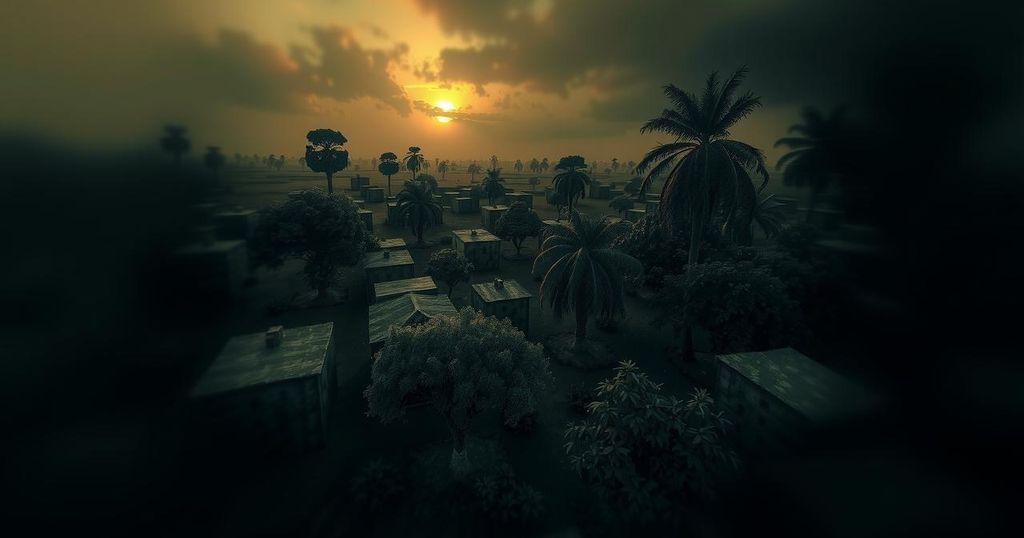Cardinal Stephen Ameyu Martin Mulla of South Sudan expressed concerns that the nation faces increasing problems despite gaining independence 14 years ago. He attributed ongoing challenges to poor governance and corruption. The country, which descended into conflict shortly after independence, still struggles with political instability, humanitarian crises, and economic deterioration. The Cardinal believes that the Synod on Synodality may offer a means to foster dialogue and resolution.
In a recent statement, Cardinal Stephen Ameyu Martin Mulla, the prominent Catholic leader of South Sudan, conveyed his dismay regarding the increasing challenges faced by the nation 14 years after gaining independence from Sudan. This announcement was made during the Synod on Synodality held in Rome, where he expressed that the anticipated peace and stability have not materialized. The Cardinal attributed the ongoing turmoil and dissatisfaction to the mismanagement of the country’s abundant natural resources by the authorities. “We got this independence from Sudan. We thought that we were going to solve our problems. But it seems that problems have increased,” stated Cardinal Ameyu. He emphasized that despite the people’s sacrifices for independence, unresolved issues continue to plague the nation. Following its independence on July 9, 2011, South Sudan quickly succumbed to civil strife, particularly as political factions clashed after President Salva Kiir leveled accusations of conspiracy against former vice-president Dr. Riek Machar. Numerous attempts at establishing peace through agreements in 2015, 2017, and 2018 have largely faltered, leading to persistent violence and instability between various factions. Father John Gbemboyo, the Pastoral and Social Communication Coordinator for the Sudan Catholic Bishops’ Conference, noted that the conflict has exacerbated intercommunal violence and has resulted in a dire humanitarian crisis that continues to afflict the country. In 2018, a peace agreement was established, outlining necessary reforms and a timeline for elections, initially set for December 2024. However, the implementation of key provisions has been severely lacking, primarily due to political maneuvering intended to safeguard the interests of the ruling elite. Consequently, the election has been postponed to December 2026. Cardinal Ameyu lamented the inadequate enforcement of the peace agreement, emphasizing the resultant corruption and resource mismanagement that hinder the nation’s stability. Gbemboyo further highlighted the catastrophic economic conditions, reporting soaring inflation rates and extensive delays in civil servant salaries, which have not been disbursed for nearly ten months. The situation in South Sudan is compounded by natural disasters, including destructive flooding that has devastated land and infrastructure, displacing communities. Additionally, the inflow of refugees from the ongoing conflict in Sudan has further strained the nation’s fragile economy. Cardinal Ameyu expressed his concerns about Sudan, which has been engulfed in conflict since April 2023, characterized by violence between the Sudanese Armed Forces and the paramilitary Rapid Support Forces. This ongoing strife has led to substantial casualties, displacement, and widespread humanitarian needs, with millions in need of assistance. Ameyu believes that the Synod on Synodality may provide a potential route to reconciliation and stability in South Sudan, advocating for dialogue as an essential mechanism for problem-solving within both the Church and political arenas. He asserted, “That is one thing that this synod on synodality is emphasizing: we are not leaders in order to rule people, we’re leaders in order to serve people.” Father Gbemboyo also underscored the significance of synodality, stating that it represents a crucial opportunity for the global Church to support peace initiatives in South Sudan, demonstrating solidarity with the struggles faced by its people.
Cardinal Stephen Ameyu Martin Mulla’s remarks come amidst a backdrop of ongoing challenges in South Sudan, 14 years after its independence from Sudan. The country, which emerged from years of civil conflict, continues to grapple with severe political instability, widespread violence, and humanitarian crises exacerbated by corruption and poor governance. Following independence in 2011, expectations for peace and development quickly waned as internal power struggles erupted into civil war in 2013. With political factions clashing and the subsequent failure to adhere to peace agreements, South Sudan has remained ensnared in a cycle of violence and mismanagement, prompting concerns from religious and community leaders about the future of the nation. The Synod on Synodality, which focuses on collaboration and dialogue, is viewed as a potential avenue for fostering understanding and resolving conflict, both within the Church and the broader political landscape of South Sudan.
In conclusion, Cardinal Ameyu’s statements reflect the profound challenges facing South Sudan 14 years post-independence. With persistent conflict, economic strife, and leadership failures undermining hopes for peace, the Cardinal’s call for dialogue and cooperation through the Synod on Synodality emerges as a crucial step forward. The ongoing instability in both South Sudan and neighboring Sudan highlights the urgent need for comprehensive solutions geared towards reconciliation and sustainable development, emphasizing the role of the Church in addressing these issues.
Original Source: cruxnow.com






